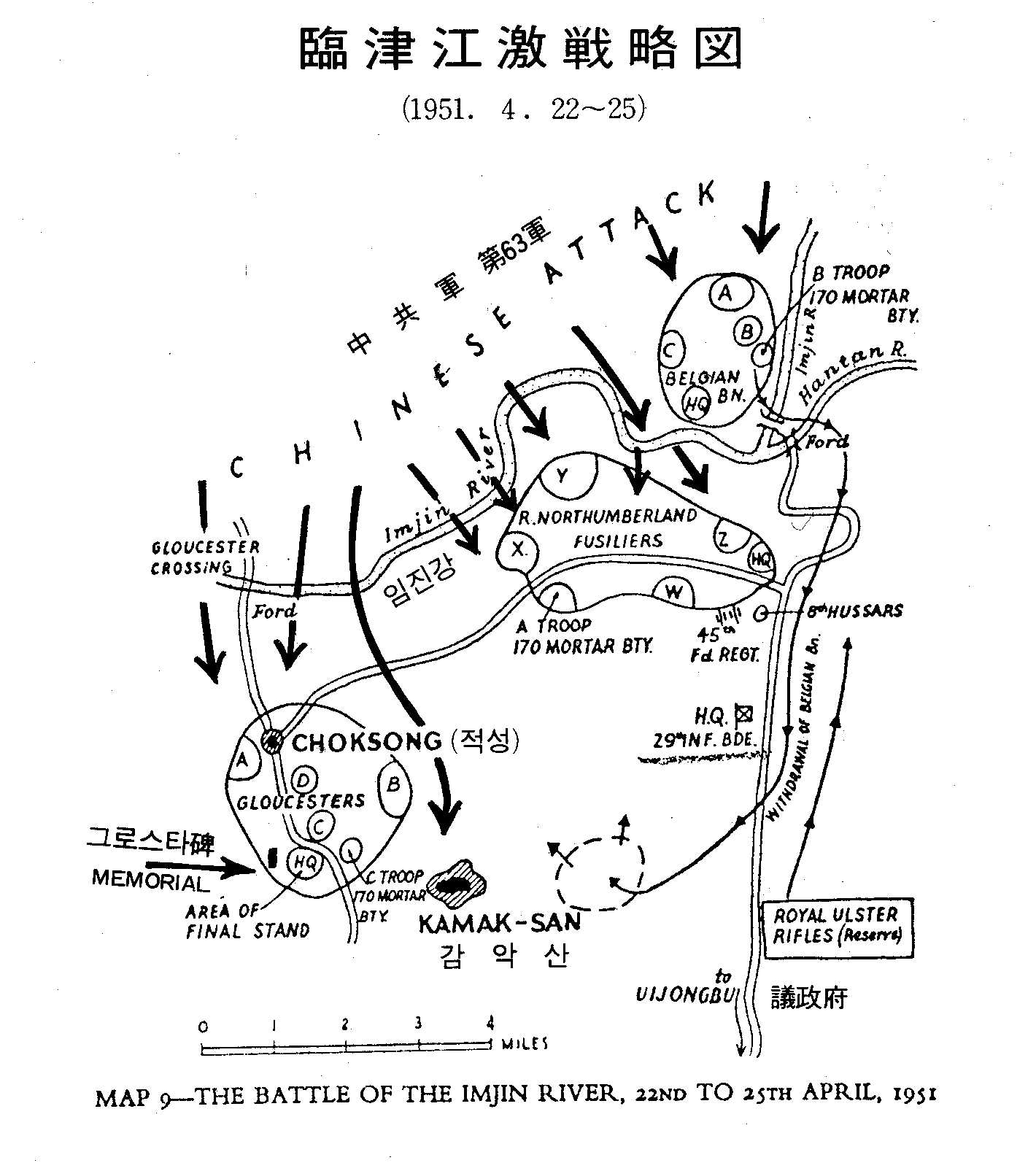THE
BATTLE
(Source:
Office of the Defence Attache, British Embassy Seoul)
The action against the Chinese Communist Forces by the 1st
Battalion The Gloucestershire Regiment and C Troop, 170th Independent
Mortar Battery, Royal Artillery during the
Battle of the Imjin River, 22nd-25th
April 1951.
Many
British Army units served in the Korean War, and fought many important actions.
This is the story of one of those actions, that of the 1st
Battalion The Gloucestershire Regiment at Solma-Ri.
During
the spring of 1951 three Divisions of the 63rd Chinese Communist Army
chose an historic invasion route along which to mount an attack on Seoul.
Astride their route of advance lay this valley, where the 29th
Brigade had prepared its position overlooking the Imjin River.
The
1st Battalion of the Gloucestershire Regiment was supported by C
Troop 170th Independent Mortar Battery, Royal Artillery now called
the Imjin battery. The remainder of
the Brigade, the Northumberland Fusiliers, The Royal Ulster Rifles and the
Belgian Capital Battalion was deployed to the east of the Gloucestershire
Regiment. Centurion tanks of the 8th
Kings Royal Irish Hussars, 25 pounder guns of 45th Field Regiment,
and 55 Squadron Royal Engineers provided the Brigade with its close support.
The Brigade frontage of about 12,000m contained gaping holes through
which the enemy were subsequently to infiltrate in their thousands.
It
was a warm day, with a touch of spring in the air when, on 22 April 1951, the
Battle of the Imjin began. Throughout
the first night the Battalion held its positions against seemingly overwhelming
odds of ten to one. During the next
two days, in the course of bitter fighting, it was forced to withdraw from the
forward positions onto the hills overlooking Solma-Ri (The site of the
Gloucestershire Regiment Memorial).
By
the evening of the 24th April, the exhausted survivors, occupying a
small position on the hill-top, were completely surrounded.
Ammunition was low and all attempts to relieve them had failed. That night, they held the hill against further repeated
attacks. Finally on the morning of
the 25th April, they made their last stand before attempting to break
out through the encircling Chinese. Lacking
ammunition most were captured in the Chinese dominated countryside.
At
the roll call after the battle the “Glorious Glosters”, as they became
known, could only muster 67 Officers and men.
There were 59 dead and 526, of whom 180 were wounded, had fallen into
enemy hands. Of these 34 died in captivity.
Though minor in scale the battle’s ferocity caught the imagination of
the world. In this action the
Glorious Glosters were awarded two Victoria Crosses.
The valour of these two men epitomized the selfless sacrifice of all
those who were killed, captured, or wounded during this brief, but bloody,
encounter.
Their
action delayed for three days the advance of the Chinese, providing time for the
united nations Forces to re-group and block the Chinese advance on Seoul.
During
the Korean War (1950~1953) British casualties were 1,078 killed and 2,674
wounded.

